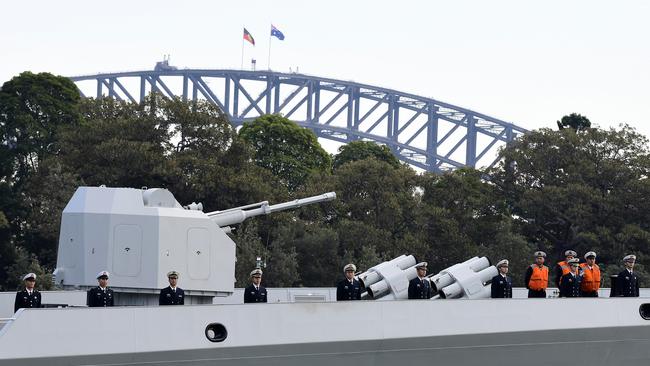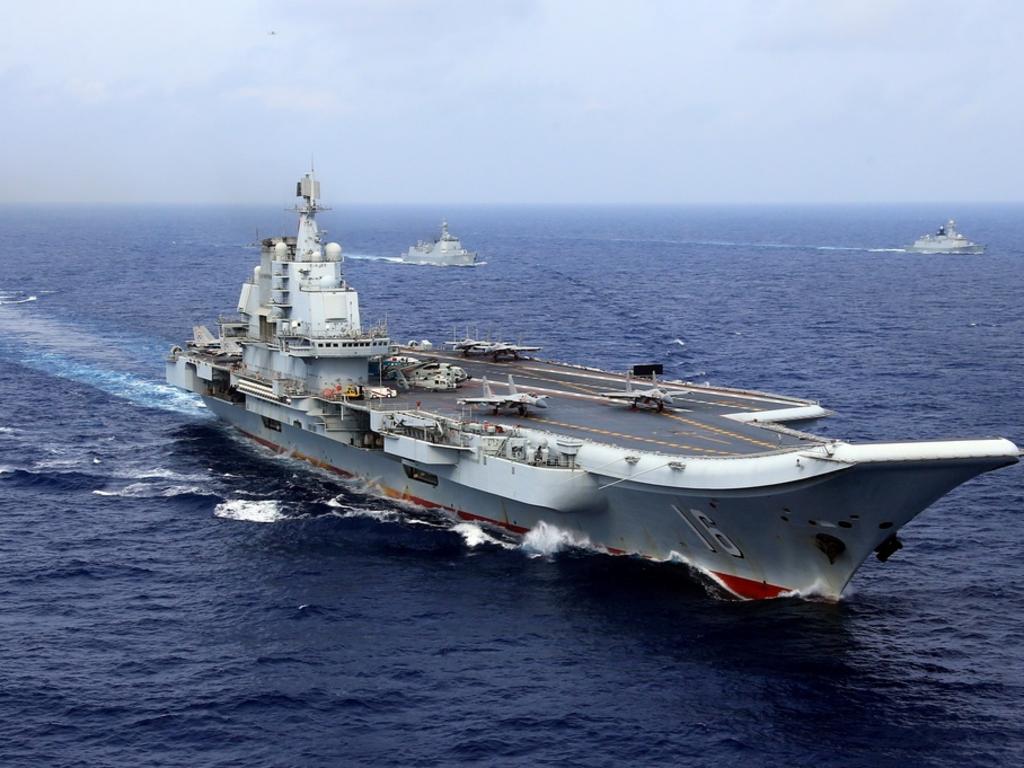Can Australia depend on our Asian neighbours for security?
If America fails us, can Australia credibly depend on our Asian neighbours for our security? What are the alternatives?

For a half-century, Australian defence policy has shifted uneasily between self-reliance and dependence on the US. But the government’s 2020 Defence Strategic Update, released in July, marks an important change in direction.
Both approaches are largely abandoned and, instead, Australia will seek its security principally as part of a coalition of Asian countries.
The government hopes this coalition will be led by the US, but that is not taken for granted. If America fails us, we will look not to ourselves but to our Asian neighbours — as John Curtin might have put it, “free of any pangs”. Can Australia credibly depend on our Asian neighbours for our security? What are the alternatives?
The government’s abandonment of self-reliance is a stark change. Every defence policy statement from 1976 to 2013 has declared this to be Australia’s highest priority. The 2016 defence white paper steps back from that by stating that defending Australia is one of three core missions, along with contributing to operations in maritime South-East Asia and the South Pacific, and to global coalitions.
But this year’s update goes further. We are left to assume that Australia falls within the expansively defined “immediate region” — covering everything from New Zealand to the borders of India and China — which is the new focus of Australian defence planning. The priority, it seems, is to build forces to fight alongside other countries to defend stability and order across this region.
Thus, decades of commitment to developing and sustaining the capacity to defend Australian territory independently from direct attack have been summarily jettisoned. Commitments in North Asia have lower priority than those in the immediate region.
It is easy to understand why the government is stepping back from these two enduring pillars of Australian strategic policy. The reason is China.
While Washington’s eagerness to confront China has increased, with bold talk of a “new cold war”, its capacity to do so successfully looks less and less certain. China is a formidable rival. Its economy — far bigger relative to America’s than the Soviet Union’s ever was — makes it the most powerful adversary America has faced. Its massive and strategic investment in maritime forces has undermined US military superiority in the Western Pacific. Its huge trade footprint gives it immense diplomatic leverage. And it is deeply resolved to take America’s place as the leading power in East Asia.

Nearly three years after declaring China to be its key strategic rival, Washington still has no coherent policy to resist this challenge. The reasons go deeper than the failings of the Trump administration. They go to the fundamental question of whether America needs to preserve its leadership role in Asia enough to justify the costs and risks of containing a rival as powerful as China in China’s own back yard.
These are anxious times. Not since early 1942 have Australians felt so in need of allies yet been so unsure of their major ally. It is not surprising, then, that Canberra is eagerly, even desperately, looking for new protectors.
At first glance, our Asian neighbours seem promising partners. We live in a region full of countries that share our concerns about China. Some of them are already powerful, while others have clear potential. It makes sense to consider how they might help to keep us secure in the decades ahead.
The obvious idea is to use their strength to buttress America’s dwindling power and resolve, drawing them together into a regional US-led coalition to contain China — in other words, an Asian NATO.
To many, the geopolitical logic appears so strong as to seem self-evident. Countries throughout Asia fear China’s rising power and ambition to become the regional hegemon. They welcome America’s role in balancing China’s power and limiting its influence. Therefore, they will be eager to support America in doing that.
But while it is easy to agree that China’s neighbours are all anxious about its growing reach, it is much harder to say what they are prepared to do about it. Broad gestures of diplomatic support don’t thaw much ice in a cold war. China will bitterly resent and savagely punish those who oppose it. It has the capacity to impose high costs on its weaker neighbours. China’s neighbours fear its growing power and ambitions, but do they fear it enough to drastically impair their relations with Beijing by joining a close-knit coalition against it? And to commit to war with China if one among them is attacked? It is far from clear that they do.
We can test this judgment by reflecting on how readily Australia would accept the costs and risks of an alliance against China. Would we be willing to contribute forces to support Japan in a war over the Senkaku/Diaoyu Islands? To support India in a clash in the Indian Ocean? To support the US in a military conflict over Taiwan? The government itself seems unsure, as we see in the way it downplays the prospect that Australia might contribute forces to conflicts in North Asia in the latest defence update.
The more closely one examines the government’s hopes for a new regional coalition, the less viable the whole idea seems. The defence policy assumes that Australia can take on an array of new alliance commitments to fight in high-intensity conflicts against China without substantially increasing its forces. The update contains no commitments to significantly expand Australia’s defence capabilities. The government suggests that Australia faces the most dangerous outlook since the 1930s yet plans to spend only the same share of gross domestic product on defence considered barely adequate in the optimistic 90s.
This curious complacency is also clear in the government’s diplomatic plans. The update describes the steps that Canberra will take to deepen and strengthen Australia’s defence and strategic relationships with Asian neighbours. It’s striking that nothing proposed goes beyond what has already been done for years, even decades.
What should it be doing to prepare for the looming perils?
First, the government should acknowledge that for the first time in our history, as Western power in Asia is finally eclipsed, Australia must make its way alone and take responsibility for its own security in a way it has never had to before. Rather than stepping away from defence self-reliance as things get tougher, we must step into it.
Second, Australia should work to build the strongest linkages it can with the countries that could be of most value in the decades ahead. That means abandoning unrealistic ambitions for strategic partnerships with every country between Australia and China. Instead, Canberra should focus on the countries whose strategic interests converge most closely with Australia’s. Indonesia stands out. Canberra could lay the groundwork for future co-operation and mutual support by starting a frank, serious and private conversation with Indonesian leaders about the strategic challenges both countries face.
Third, Australia should rethink its military strategy and defence budget to create forces that can defend Australia independently and provide real support to potential strategic partners.
Geography has done us a critical favour here. All our close neighbours are island nations and their defence, like ours, depends on maritime forces. The capabilities we should build to achieve maritime denial in our own defence would allow us to make a major contribution to defending the islands to our north as well.
Australia cannot take the military backing of other countries for granted in the difficult years ahead. It needs to be able to stand alone and to maximise the chances that it will find support from others. And this means it needs a much more radical rethink of defence planning than anything yet contemplated in Canberra.
This is an edited extract from Hugh White’s essay in the latest issue of Australian Foreign Affairs, out now. He is emeritus professor in strategic studies at the Australian National University.






To join the conversation, please log in. Don't have an account? Register
Join the conversation, you are commenting as Logout